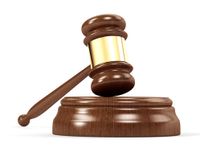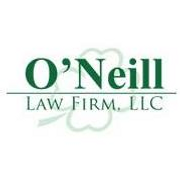An Attorney Explains What You Need to Know About Bankruptcy

Bankruptcy provides a way for those with heavy debt to seek relief, thus giving them a fresh start. In Wisconsin, there is a Western District and Eastern District with courts for hearing bankruptcy cases. Most Counties West of Madison are in the Western District. People who are considering bankruptcy typically retain a bankruptcy attorney for assistance. Mistakes can lead to severe consequences including criminal penalties.
What You Need To Know About Bankruptcy
Secured Vs. Unsecured Debt
A secured claim for credit in bankruptcy means the lender has a lien on something that you own; examples of these would be home mortgages and car loans. If a creditor does not have a lien against some property you have, it has an unsecured claim. Bankruptcy actions typically can discharge (or eliminate) most unsecured claims; examples of these would be credit card debt and medical bills.
Chapter 7
 A Chapter 7 bankruptcy appoints a trustee to investigate if there are any unsecured assets that are worth recovering. Most, but not all of the Wisconsin Chapter 7 cases are “no-asset” cases, as the debtor has no assets exceeding certain exemption amounts. Even in an “asset” case, the trade off can still be very positive because the debt elimination is still very valuable. An attorney can sit down with you and do some planning to make sure asset exposure is minimal.
A Chapter 7 bankruptcy appoints a trustee to investigate if there are any unsecured assets that are worth recovering. Most, but not all of the Wisconsin Chapter 7 cases are “no-asset” cases, as the debtor has no assets exceeding certain exemption amounts. Even in an “asset” case, the trade off can still be very positive because the debt elimination is still very valuable. An attorney can sit down with you and do some planning to make sure asset exposure is minimal.
Chapter 13
In a Chapter 13, the debtor creates a payment plan to repay creditors (at least partially) over a period of three to five years. This is different from Chapter 7 in that you are required to have a steady income to prove you can meet the plan obligation. Individuals who wish to retain an asset, such as a house that has equity over and above the base exemption, are able to do so in Chapter 13. In addition, any assets that may be exposed to the trustee in a Chapter 7 case can be kept. Once the repayment plan is completed, the debts are discharged.
Eligibility
Those debtors with predominately consumer debt, and low to average income, will generally be eligible for Chapter 7. A “means test” is used to make eligibility determinations and focuses on the debtor’s household income during a specified time period. This income level is matched against the state’s median income, and further allows for subtracting some allowable expenses. If it is determined that the debtor has some disposal income available to pay debts, the debtor may not qualify for a Chapter 7. This test can be extremely complicated. Having an experienced bankruptcy attorney making sure you are getting all your deductions can be essential.
Has your debt load reached a level where you cannot keep up with the payments? You may be eligible to have your debts discharged in accordance with bankruptcy law. For over 20 years now, the O'Neill Law Firm, LLC has served their clients who need a bankruptcy attorney in La Crosse and surrounding Counties. You will experience their client-focused practices when calling (608) 519-3551 for a free consultation.
About the Business
Have a question? Ask the experts!
Send your question

